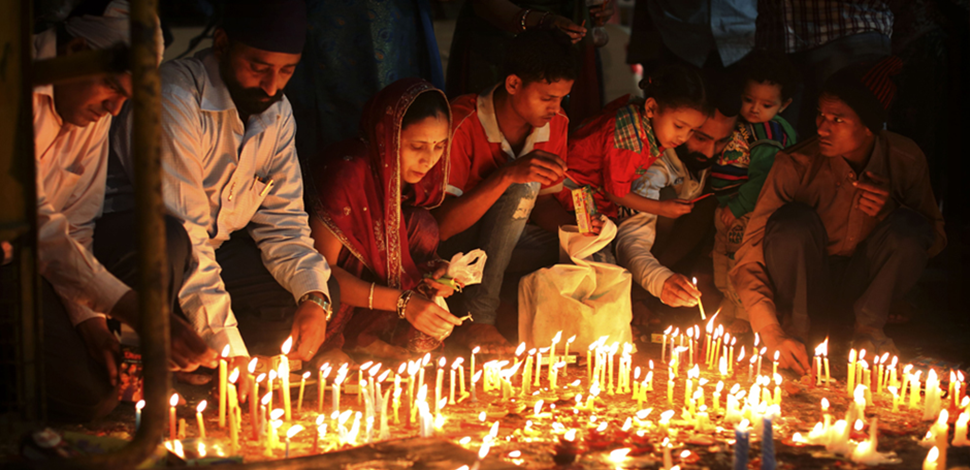Happy Diwali to those celebrating today!
The word Diwali comes from the Sanskrit word “deepavali”, meaning "rows of lighted lamps" and is also associated with the Sanskrit words dīpa, "lamp, light, lantern, candle, that which glows, shines, illuminates or knowledge”. Diwali is celebrated by four major religions – Hinduism, Sikhism, Jainism, and Buddhism – and is celebrated by over a billion people throughout the world.
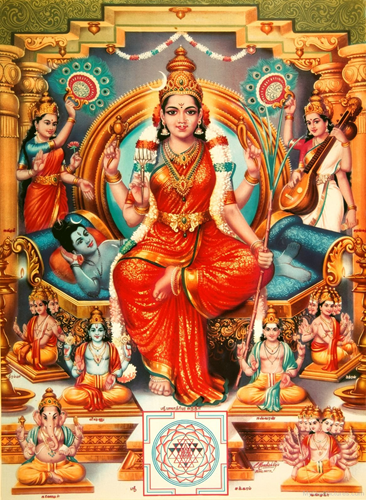
In the Hindu tradition, the religious significance of Diwali varies by place. The festival is associated with many deities, traditions, and symbolism. One tradition links the festival to legends in the Hindu epic the Ramayana, where Diwali is the day the heroes Rama, Sita, Lakshman and Hanuman returned home from exile after Rama defeated demon king Ravana. Others celebrate the victories of other gods and goddesses such as Krishna, Kali, and Saraswati – but the common theme is always the triumph of good over evil as represented in the stories of Hindu mythology. All share a common focus on righteousness, self-inquiry and the importance of knowledge, the path to overcoming the "darkness of ignorance".
Diwali also honours Lakshmi, the Hindu goddess of wealth. The lights and lamps are said to help Lakshmi find her way into peoples’ homes, bringing prosperity in the year to come! Rangoli is another popular Diwali tradition –– beautiful patterns made using colourful powders and flowers are created by the entrance to the home to welcome the gods and bring good luck! Alongside religious observations, Diwali is celebrated with decorations, music, food, dancing, gifts, fireworks, and family celebration in communities across and beyond India.
Jainism
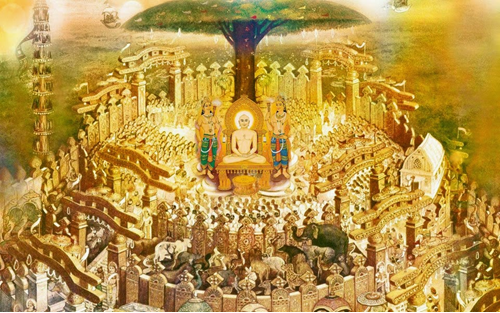
In the Jain tradition, Diwali is celebrated in remembrance of "Mahavira Nirvana Divas", the physical death and final nirvana of Mahavira, the Jain founder. The Jain Diwali celebrated in many parts of India has similar practices to the Hindu Diwali, such as the lighting of lamps and the offering of prayers to Lakshmi. However, the focus of the Jain Diwali remains the dedication to Mahavira. According to the Jain tradition, this practice of lighting lamps first began on the day of Mahavira's nirvana in 527 BCE when 18 kings who had gathered for Mahavira's final teachings issued a proclamation that lamps be lit in remembrance of the "great light, Mahavira". This traditional belief of the origin of Diwali, and its significance to Jains, is reflected in their historic artworks such as paintings. Diwali is also considered the start of the Jain New Year.
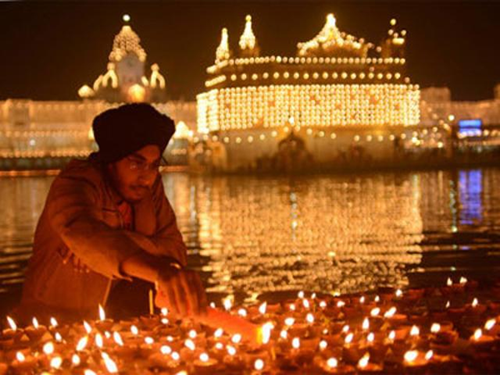
The festival of Diwali highlights three events in Sikh history: the founding of the city of Amritsar in 1577, the release of Guru Hargobind from the Mughal prison, and the day of Bhai Mani Singh's martyrdom in 1738 as a result of his failure to pay a fine for trying to celebrate Diwali and thereafter refusing to convert to Islam. The festival is more commonly known by Sikhs as Bandi Chhor Divas.
For Sikhs, Diwali is particularly important because it celebrates the release from prison of the sixth guru, Guru Hargobind in 1619. Sikhs celebrated the return of Guru Hargobind by lighting the Golden Temple and this tradition continues today.
Guru Amar Das, the third Guru of the Sikhs, built a well in Goindwal with eighty-four steps and invited Sikhs to bathe in its sacred waters on Baisakhi and Diwali as a form of community bonding. Over time, these spring and autumn festivals became the most important of Sikh festivals and holy sites such as Amritsar became focal points for annual pilgrimages.
Buddhism
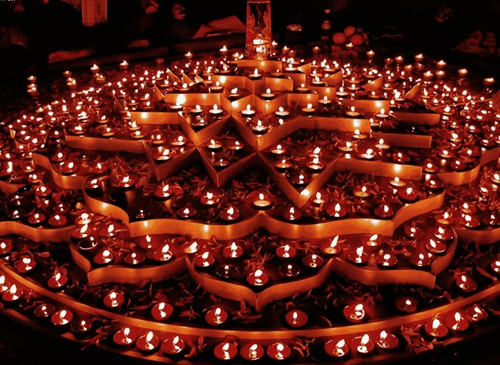
Diwali is not a festival for most Buddhists, with the exception of the Newar people of Nepal who worship various deities in the Vajrayana Buddhism and celebrate Diwali by offering prayers to Lakshmi. Newar Buddhists in Nepalese valleys also celebrate the Diwali festival over five days, in much the same way, and on the same days, as the Nepalese Hindu Diwali-Tihar festival. According to some scholars, Buddhist worship of Lakshmi and Vishnu during Diwali is a reflection of the freedom within Mahayana Buddhist tradition to worship any deity for help in this world.
On the final day of Diwali, sisters give gifts to their brothers. According to a popular legend in Hindu mythology, after slaying the evil demon Narakasura, Lord Krishna visited his sister Subhadra who gave him a warm welcome with sweets and flowers. She also affectionately applied tilaka on Krishna's forehead. Some believe this to be the origin of the festival.
Happy Diwali to all those who have been celebrating, and I hope the rest of you enjoyed learning a little about the beautiful Festival of Lights!


